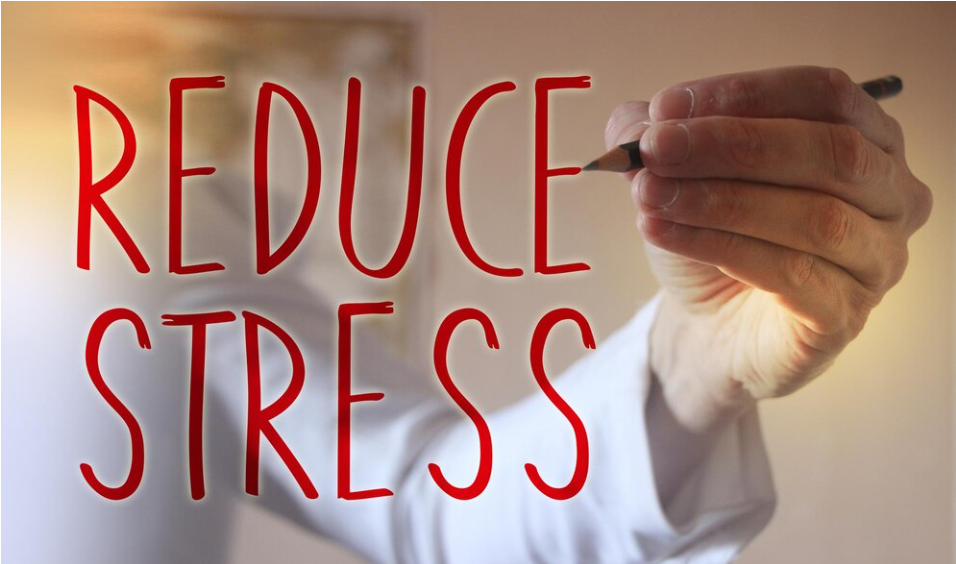A Guide to Detaching from a Stressful Life

Living in today’s fast-paced and stressful world presents numerous challenges that can take a toll on our mental, emotional, and physical well-being. In this guide, we’ll explore various strategies and practices to help individuals detach from stress, promoting a more balanced and peaceful life.
Introduction

The demands of modern life can leave us feeling overwhelmed, anxious, and exhausted. From the pressures of work to the constant digital connectivity, it’s crucial to recognize the importance of detaching from stress for our overall health. This guide will delve into practical techniques and insights from experts and individuals who have successfully navigated the path to stress detachment.
1. MINDFUL AWARENESS: Navigating the Present Moment
Mindfulness is a powerful practice that can help us detach from stress by grounding us in the present moment. It involves being fully aware of our thoughts, feelings, and sensations without judgment. Mindfulness experts, including practitioners and meditation teachers, shed light on the science behind mindfulness and its stress-reducing impact.
Psychologists specializing in stress management and mindfulness-based interventions provide psychological context, merging mindfulness practices with cognitive strategies. Medical experts delve into the physiological effects of stress and how mindfulness contributes to improved health outcomes.
Real-life anecdotes from mindfulness practitioners underscore its practical value, sharing examples of how mindfulness aids stress detachment. Academic studies reinforce mindfulness’s scientifically proven potential for stress reduction. Organizations offering mindfulness programs provide insights into their methods, highlighting how their structures facilitate stress detachment. Respected authors specializing in mindfulness and stress reduction offer valuable insights through their publications.
By weaving these diverse sources, we gain a comprehensive perspective on mindfulness’s role in detaching from stress in the present moment.

2. SIMPLIFYING AND DECLUTTERING: Embracing Clarity Amid Chaos

Simplifying and decluttering our lives can significantly reduce stressors and create mental space for tranquility. Minimalism advocates explain how “less is more” and how decluttering physical and mental spaces can lead to reduced stress. Experts in organization share strategies for decluttering possessions, managing time, and trimming commitments, contributing to mental clarity.
Digital harmony is essential
in our hyperconnected world, and digital minimalists discuss how curbing screen time and setting boundaries create space for calm. Personal testimonials from
those who’ve embraced simplicity highlight how decluttering transformed their lives, leading to enhanced well-being and reduced stress.
Psychologists delve into the psychology behind decluttering, discussing how an uncluttered environment positively impacts mental health. Environmentalists spotlight the connection between simplification, sustainable living, and the sense of purpose that comes from mindful consumption. Renowned authors focusing on minimalism and simplification offer insights into the transformative power of decluttering for stress reduction.
Through these voices, we understand how simplifying and decluttering can mitigate stress, empowering individuals to create space for tranquility amidst the chaos.
3. DIGITAL DETOX: Reclaiming Balance in a Hyperconnected World
Excessive screen time can significantly impact stress levels. Experts in technology shed light on the addictive nature of screens and how a digital detox can reset our relationship with technology. Psychologists discuss the psychological impact of constant digital engagement and explore the benefits of unplugging for mental well-being.
Real-life stories from individuals who’ve experienced a digital detox highlight reduced stress, improved focus, and enhanced relationships. Experts advocate for mindful tech consumption, offering strategies to set healthy boundaries and prioritize offline experiences.
We discuss the connection between excessive screen time, stress, and anxiety, emphasizing the value of intentional digital use. Additionally, we explore the physical benefits of reducing screen time, such as improved sleep and posture, as well as strengthened real-world connections.
Through these perspectives, we gain a clearer understanding of the need for periodic digital detoxes, empowering individuals to regain control over their digital lives and foster a healthier relationship with technology.

4. ENGAGING IN RELAXATION TECHNIQUES: Unwinding the Mind for Inner Calm

Practical relaxation techniques can help individuals relax their bodies and minds, promoting detachment from stress. Wellness experts shed light on various relaxation methods, from deep breathing to meditation, and how they alleviate stress.
Psychologists explain how relaxation techniques influence the brain, triggering the relaxation response and reducing stress hormones. Personal testimonials from individuals who’ve integrated relaxation practices into
their lives share stories of improved mental clarity, reduced tension, and emotional balance. We explore the mind-body connection and how relaxation techniques bridge the gap between mental and physical well-being. Practical guidance on incorporating relaxation techniques into daily routines promotes the cultivation of mindfulness and calm.
Discussion of the physical benefits, such as lowered heart rate, and emotional benefits, including heightened emotional resilience, reinforces the power of relaxation techniques in promoting overall relaxation and reducing stress.
5. PURSUING HOBBIES AND PASSION PROJECTS: Nurturing Joy and Personal Growth
Immersing oneself in activities they love can divert focus from stressors and promote relaxation. Creative voices, including artists, writers, and creators, share how engaging in hobbies cultivates a sense of fulfillment and creative expression.
Psychologists delve into how pursuing hobbies provides a break from stress, enhances mood, and contributes to overall well-being. Personal stories from individuals who’ve dedicated time to passion projects recount discovering new talents, gaining confidence, and reducing stress.
We explore the concept of the “flow” state, where hobbies lead to heightened engagement and being present, promoting detachment from stress. Strategies for incorporating hobbies into busy schedules, promoting work-life balance and fostering a sense of purpose, are discussed.
Furthermore, we delve into how hobbies spark continuous learning, boost cognitive abilities, and positively impact mental agility. Highlighting how pursuing hobbies can lead to connecting with like-minded individuals fosters social connections and shared experiences.
Through these diverse insights, we understand the benefits of pursuing hobbies and passion projects for stress reduction and personal growth, inspiring readers to prioritize activities that bring them joy and fulfillment.

6. NATURE AND OUTDOOR ACTIVITIES: Reconnecting with the Healing Power of the Outdoors

Spending time in nature and engaging in outdoor activities can have therapeutic effects in reducing stress and promoting well-being. Environmentalists and nature advocates emphasize the therapeutic effects of nature exposure on mental and emotional well-being.
Psychologists discuss how immersing in natural environments reduces stress, lowers anxiety, and enhances mood. Personal experiences from individuals who’ve engaged in outdoor activities share stories of finding solace, tranquility, and stress relief in natural settings.
We explore the concept of biophilia, suggesting that humans have an
inherent affinity for nature, and how reconnecting with nature fulfills this need. Practices like forest bathing and mindful hiking encourage being fully present in natural surroundings.
Highlighting the physical advantages of outdoor activities, including improved fitness, boosted immune system, and reduced stress markers, reinforces the importance of spending time outdoors. Discussion of restorative environments, where natural settings promote mental restoration and detachment from stress, further emphasizes the revitalizing effects of nature.
Through these insights, we gain a comprehensive understanding of how spending time in nature and engaging in outdoor activities can significantly reduce stress and improve overall well-being.
7. SOCIAL SUPPORT AND CONNECTION: Weaving Bonds for Stress Resilience
Strong social connections provide emotional support and stress relief. Psychologists emphasize the role of supportive relationships in buffering against stress and fostering emotional well-being. Counselors and relationship coaches discuss the importance of healthy communication and nurturing meaningful connections to reduce stress.
Personal testimonials from individuals who’ve experienced the impact of strong social support share stories of finding comfort, understanding.

CONCLUSION
In closing, it’s important to recognize that stress detachment is a personal journey, and the techniques discussed in this guide can be tailored to your unique needs and preferences. Experiment with these strategies, combine them, and create your own personalized approach to achieving a more balanced and peaceful life.
Remember that you are not alone in your quest to detach from stress. Seek support from friends, family, or professionals if needed. By taking proactive steps and committing to your well-being, you can embark on a path towards a healthier, happier, and more resilient life.
Detaching from stress is not an end goal but an ongoing process, and every step you take towards greater balance and peace is a step in the right direction. Start today, and may your journey be filled with calm, clarity, and well-being.
